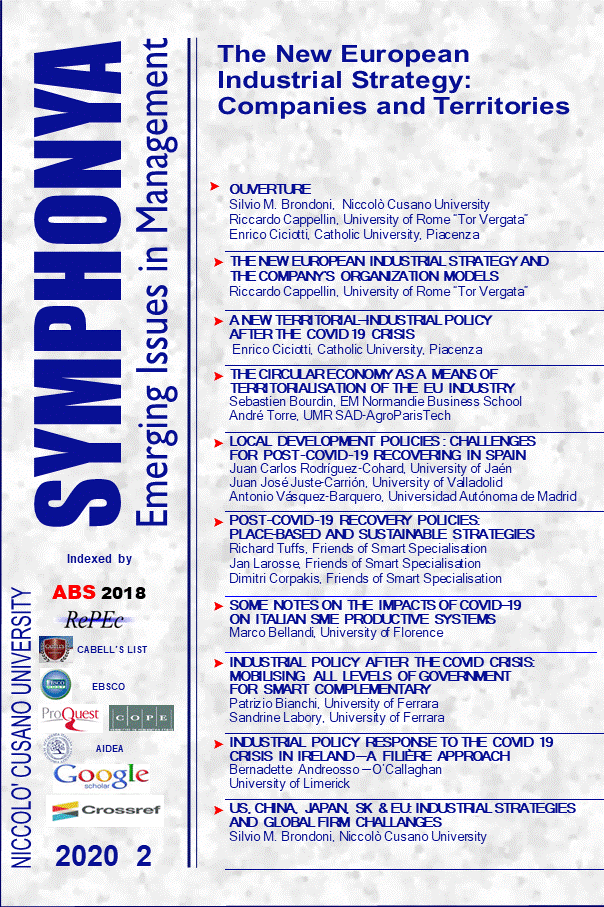Ouverture de ‘The New European Industrial Strategy: Companies and Territories’
DOI:
https://doi.org/10.4468/2020.2.01ouvertureKeywords:
Industrial Strategy, Investments, Innovation, New Productions, Citizen’s Needs, Environment, University, NGEU, Territories, COVID-19, European Union, Global Competition, Global MarketsAbstract
Europe needs an investment, employment and innovation strategy for new productions driven by the new needs of European citizens. The economic recession of Covid 19 is determined by a collapse in aggregate demand and requires the relaunch of public but also private investments that increase production capacity and diversification towards the new productions required by the needs of European citizens. The increase or the fall of the final demand for private consumption and investments tightly interact with the innovation and investments plans of the companies, with employment changes and with the impact on the natural and physical environment and on the citizen’s quality of life. The international decline of Europe, especially of the Southern Eurozone, relate to a high loss of competiveness, which results from the absence of a common industrial policy, and, on the other side, from the growth of global firms. To address the new problems arising from the structural growth crisis that has characterized European countries in recent years, aggravated by the advent of the recent pandemic, however, a radical change in perspective is needed, giving the territory a new role.Downloads
Published
How to Cite
Issue
Section
License
The authors retain all rights to the original work without any restrictions.
License for Published Contents

You are free to copy, distribute and transmit the work, and to adapt the work. You must attribute the work in the manner specified by the author or licensor (but not in any way that suggests that they endorse you or your use of the work).
License for Metadata

Symphonya published articles metadata are dedicated to the public domain by waiving all publisher's rights to the work worldwide under copyright law, including all related and neighboring rights, to the extent allowed by law.
You can copy, modify, distribute and perform the work, even for commercial purposes, all without asking permission.



